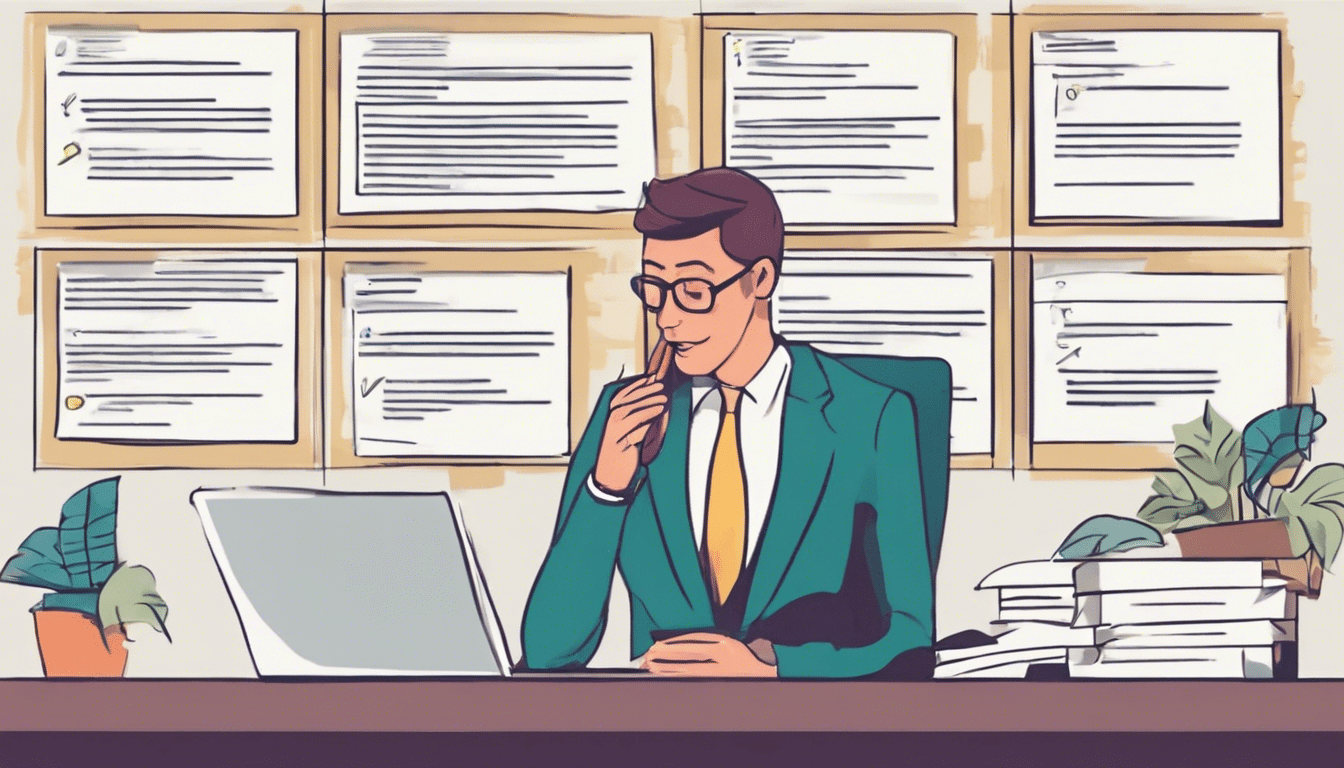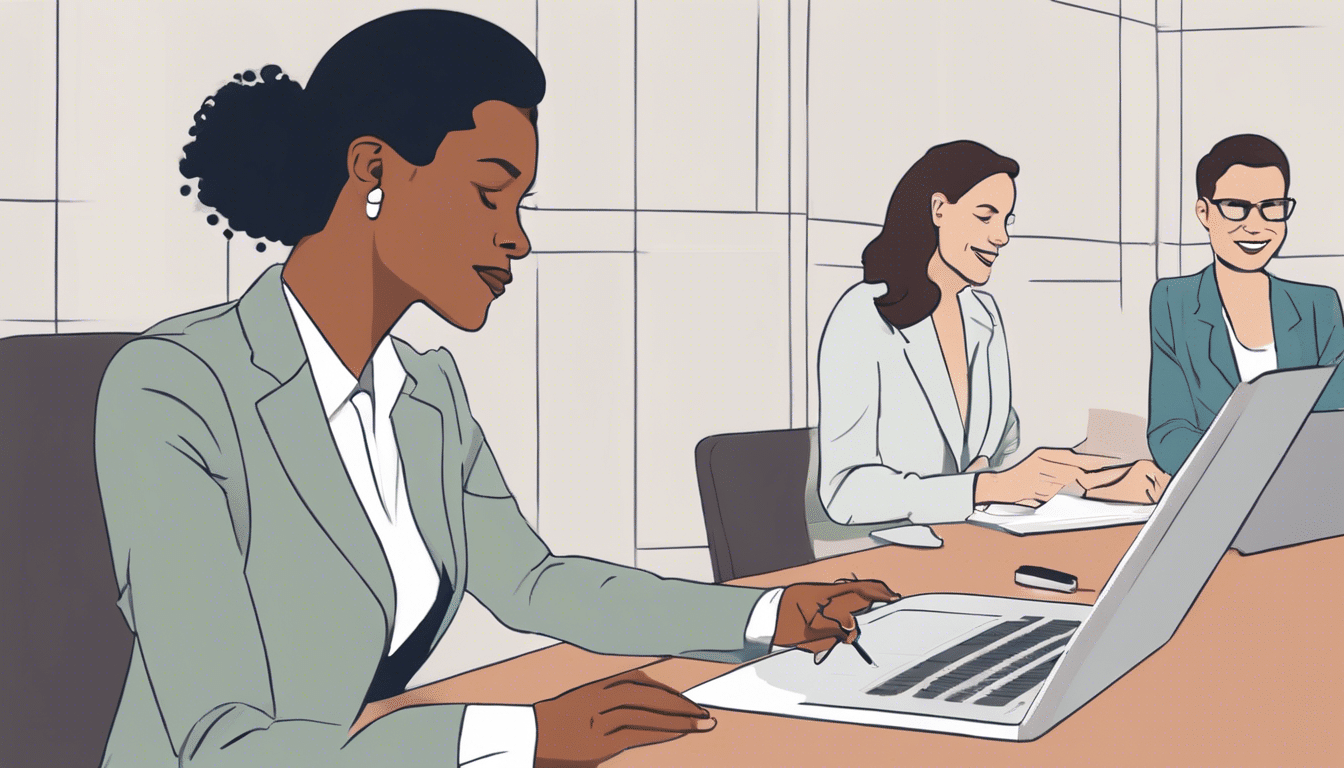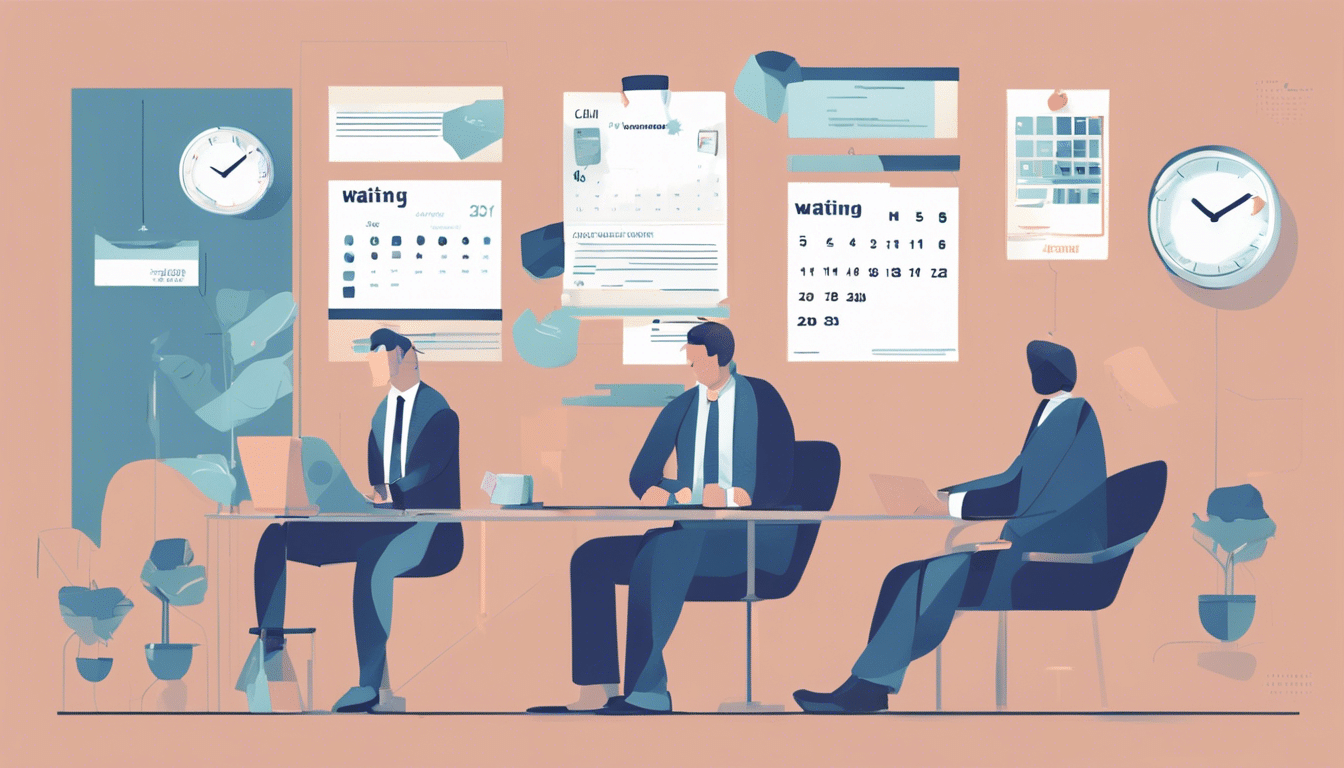You found our list of how to follow up after an interview.
Following up after an interview means maintaining contact with potential employers. For example, this process could involve sending a thank you email, making a phone call, or connecting on social media. The purpose of these steps is to show continued interest in the position. These tips are also known as “advice on following up after an interview” and “guidelines for interview follow-up.”
These tips on how to follow up after an interview are similar to interview questions and tips on preparing for an interview.

This article covers:
- why you should follow up after an interview
- best ways to follow up after an interview
- interview follow-up tips
- how to follow up with interviewers
- guidelines for interview follow-ups
Let’s get to it!
List of how to follow up after an interview (tips)
From mastering email etiquette to managing expectations, here is our comprehensive guide on how to effectively follow up after an interview.
1. Follow Email Etiquette
Proper email etiquette is important when following up after an interview. Writing a brief and respectful email demonstrates professionalism. Emails should open by thanking interviewers for the opportunity. Then, clearly state your continued interest in the position. Another tip is to briefly reference a discussed topic from the interview. Messages should conclude with a polite closing statement and contact details. Using proper email etiquette can create a favorable, lasting impact on prospective employers.

2. Understand the Timeline
Understanding the timeline after an interview helps you make informed decisions. Employers usually give a general timeframe during the interview process for when to expect a response. It is important to follow this timeline. Excessive follow-ups might seem pushy. If the deadline passes and you have not heard from the employer, then you can send a polite email asking about the status of your application. Patience and professionalism are vital in post-interview communication.

Get our free team building toolbox
- icebreaker games
- bingo cards
- DIY guides
 by teams at FedEx, Amazon, Deloitte and 73,930+ others
by teams at FedEx, Amazon, Deloitte and 73,930+ others

3. Write a Note by Hand
Writing a note by hand after an interview is a considerate and personal gesture. In today’s digital era, the effort of crafting a handwritten note helps you stand out. Your message should be brief, showing thanks for the interview and confirming your interest in the role. A handwritten note has the potential to make a lasting impact on the interviewer.
4. Have Patience
Showing patience after an interview shows professionalism and respect for the hiring process. Employers typically have many candidates to consider. While waiting for a response may cause anxiety, it is essential to allow the company time to make a decision. This waiting period is a great time to further your job search or enhance your skills. Showing patience showcases your maturity and understanding of the hiring process.
5. Follow Up in a Call
After an interview, a follow-up call shows your diligence and interest in the role. Waiting for two to three days to make this call is ideal. If you call too soon, then it might seem intrusive. During this conversation, share your enthusiasm about the job, address any questions you might have left, and thank the interviewer for their time.
6. Follow Up Through Social Media
After an interview, using social media is among the most strategic interview follow-up tips. You can express gratitude by sending a brief thank-you message through LinkedIn or Twitter. This action shows professionalism and helps you stay at the top of the interviewer’s mind. However, avoid being overly casual or sending several messages in a row. Social media is an extension of your professional image. Thus, it is important to ensure your online presence aligns with the impression you want to give. Using social media for post-interview follow-up subtly reinforces your interest in the role.
7. Thank the Interviewer
When wondering how to follow up with interviewers, remember to show gratitude. After the interview, send a thank-you note or email to the interviewer. This step shows appreciation for the interviewer’s time and opportunity. Mentioning specific details from the interview confirms your interest.
8. Address Any Concerns
Addressing concerns after an interview is a two-way street. On the one hand, you can ask the interviewer any questions you thought of after the interview. On the other, if you reflect on the interview and see if you can provide any additional information. This step shows you communicate clearly and value openness. Further, you show professionalism and a proactive approach to problem-solving.
9. Ask About Next Steps
One of the most important guidelines for interview follow-ups is asking about the next steps in the hiring process. Gaining clarity on the timeline manages expectations and reduces anxiety. Also, knowing whom to follow up with and when can help you stand out as proactive and interested in the position.
10. Express Flexibility
Post-interview, take on an open, flexible approach. You are showing the potential employer your accommodation skills and readiness to adapt to changes as they happen. Reminder emails or phone calls should reflect this flexibility. Having further discussions at the interviewer’s convenience shows your adaptability.
11. Seek Constructive Feedback
When following up, do not hesitate to ask interviewers for feedback on your performance politely. This step shows your eagerness to improve. Further, feedback can give you invaluable insights for your future interviews or job prospects.
12. Discuss Future Plans
When following up after an interview, discussing future plans is important. While talking to your prospective employer, express your interest in upcoming company projects. In addition, ask questions about your potential role. This interest demonstrates initiative and reveals a willingness to collaborate. Further, asking about future plans confirms your interest in the long-term development of the company.
13. End on a Positive Note
Ending an interview positively will make a good impression on employers. You can share your continued interest in the position and thank interviewers for the opportunity. Further, emphasize any key points from your conversation that demonstrate your qualifications. To strengthen your application, offer any extra information or materials. You can finish the discussion with a courteous closing remark. Ending professionally will leave a strong impression of confidence and enthusiasm.
14. Find Common Ground
One of the best ways to follow up after an interview is to try to find common ground with the interviewer. You can use commonalities such as shared interests or mutual connections to follow up. For instance, mention a topic you both discussed during the interview. The purpose of the follow-up is to reinforce the interviewer’s positive impression of you.
15. Manage Expectations
After your interview, managing expectations is vital. Do not expect an immediate response. Instead, be patient, as giving feedback takes time. It is important to keep confidence in your own skills and potential but also prepare for any outcome. Regardless of the result, always show professionalism. This balance can help lessen potential disappointment and foster self-improvement.
16. Maintain Professionalism
Maintaining professionalism after an interview is crucial. Be sure to send a prompt, respectful follow-up email expressing thanks and reinforcing your interest in the role. During follow-ups, listen and be patient. Further, respond to any message promptly without rushing your employer’s decision. Throughout this process, uphold your professional image.
Final Thoughts
Following up after an interview can be crucial in securing a job offer. It shows your enthusiasm and commitment towards the role while also giving you the opportunity to address any concerns or misunderstandings that may have arisen during the interview. Moreover, it allows you to reiterate your skills and qualifications, thereby reinforcing why you are the best fit for the position.
Next, check out our posts on what makes a good resume, interview tips, conversation starters, and hiring tips.



